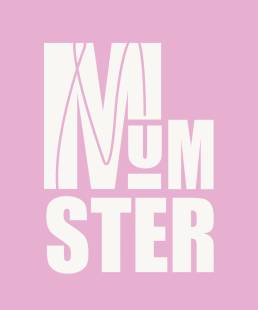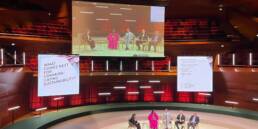The fashion industry is unquestionably a powerful force in our world, it influences the way we dress, express ourselves, and perceive beauty. However, beneath the glitz and glamour lies an industry that is notorious for its environmental impact, labour exploitation, and unsustainable practices. To address these challenges and create a more sustainable future, promoting education and raising awareness around these impacts is crucial to driving change in the fashion industry.
As a campaign agency committed to bring sustainability to the forefront in the fashion industry, we believe education is a powerful tool that has the potential to transform the fashion industry. By equipping individuals with knowledge about the social, economic, and environmental impacts of fashion, it’s possible to empower them to make informed decisions and advocate for change. Education not only fosters a deeper understanding of the issues in the current fashion system, it also instils a sense of responsibility and empowers individuals to take action.
On top of that, education helps bridge the gap between consumers and producers, fostering a deeper understanding of the intricate supply chains behind the garments we wear. By educating consumers about the origins of their clothes and the conditions in which they are produced, a greater demand for transparency and accountability emerges. This, in turn, exerts pressure on fashion brands to adopt more sustainable practices throughout their supply chains.
Books are one of the ways that individuals can learn about the impacts of the fashion industry and be encouraged to drive change. We wanted to spotlight two new and upcoming books that are being developed by fashion pioneers to equip readers with a holistic understanding of the different issues present in fashion supply chains.
The first book is called ‘Kleerkastvasten: De textielketen ontrafeld’ which translates to ‘Wardrobe fasting: The textile chain unravelled’, it’s an investigative book that came out in April. The book takes the reader on a journey in the textile supply chain, uncovering the steps our garments go through before they reach the final consumer or, unfortunately, the garbage patch.
We spoke to the writer, Sarah Vandoorne, a Belgian freelance journalist, who shared with us the reasons why she wrote this book and what she hopes to achieve with it. She decided to write it in Dutch in order to share specific insights into the regional fashion system; she explained how she “incorporated local history and research to make it worthwhile for readers who already read about the topic in other languages”. By doing so, she equips readers with comprehensive insights into both local and global fashion supply chains. Sarah explained that she wrote the book with the aim to make people more conscious of the different steps involved in garment production and the corresponding impacts that occur at every stage. “A lot of people already know the sweatshop story but don’t know the supply chain before it, or they might know about the pollution but not in depth so the book was a way to bring all knowledge together and also trying to inspire new research” Sarah told us.
“Sustainability is also a positive choice, it’s not denying myself this fun thing… I’m stepping up for my values, it’s not a negative choice” Sarah Vandoorne

“Unveiling Fashion’s Dark Secrets: A Journey Through the Textile Value Chain”
When writing the book what shocked Sarah the most was being confronted with the volume of fashion products that end up as waste. From her visit to places like the Kantamanto market in Accra, Ghana, to the streets of Panipat, the so-called ‘castoff capital’ of India, it became clear to her that the current production volumes of the industry are unsustainable. Another surprising finding was the attitude of the garment workers she spoke to in Bangladesh, who, contrary to her expectations, were not dissatisfied with the hard work for a meagre pay but were really happy to have a job.
This response made her question the western ideas of supply chains that more often than not portray garment workers as victims. Sarah’s nuanced approach to reporting combined with her firsthand experience visiting and speaking to producers all over the world, gives the book a unique perspective as she critically analyses every link in the textile value chain and combines years of research into an accessible and engaging publication. “The best route is still the one that needs to be invented and we have to collectively think and do more about it”.
‘Kleerkastvasten’ is mainly an educational book but when asked where she believes the responsibility lies to drive change, Sarah believes it is shared.
She affirmed that “Companies should take responsibility but if we leave it up to companies then they’ll just do voluntary codes of conducts and audits and I don’t trust companies enough to do their share of the work if not incentivized by governments and consumers.” She thinks regulations are vital at this point. She added that “It’s a systematic failure of the system so responsibility should not lie with individuals”. Sarah also sees a lot of potential in journalism and investigative reporting to shine a light into the exploitative and pollutive elements of the fashion industry and bring them into the mainstream so that they can be tackled by all stakeholders. She concluded by saying that writing about the impacts of fashion, an extremely influential industry that’s at the intersection of ecology, animal and human rights, is essential to make a difference and inspire other industries to scrutinise their supply chains as well. ‘Kleerkastvasten’ is a must read for anyone looking to gain insights into the current issues of the fashion industry. You can buy it here or at your local bookstore!
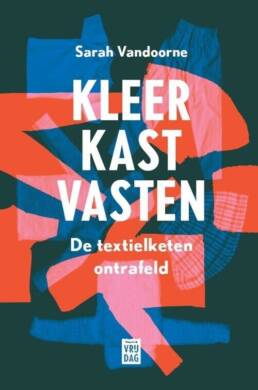
Explaining the complexity of the fashion system and the textile economy to young readers.
The second book we wanted to highlight, also in Dutch, looks into similar issues, but targets a different audience, one that’s often left out of this conversation. Fibershed Netherlands, a non-profit organisation that develops regional fibre systems to build ecosystem and community health, crafted a book called ‘Goede Gespreksstof’ or ‘good conversation material’. The book takes young people from the age of 10 into the world of clothing, explaining complex themes of the circular economy and the consequences of the globally fragmented textile chain in simple, clear language. We spoke to Stijntje Jaspers and Martine Nieuwenhuis, founders of Fibershed Netherlands, to find out more about this book.
In the words of Stijntje, who is writing the book, ‘Goede Gespreksstof’ “is a richly illustrated book (illustrated by Jacqueline Elich) that truly reads like a magazine”. Each page contains “valuable insights that explain in a fun way how the essence of clothing has changed from skillfully crafted products to disposable fashion.” It dives into the impacts that this has on the health and wellbeing of the environment, people and communities. “Through the book, readers gain a clear insight into the choices they can make as a wearer, student and future professional.” Stijntje explains.
The goal of the book is to empower the readers to make better fashion choices, based on what is most important to them.
The book dives into these topics in a way that explains the complexity of the fashion system and the textile economy to young readers. “This audience is extremely important if we want to bring about change in the future, as young teenagers are in this deciding stage of developing their identity and start choosing what to wear. It is important we give them the tools to understand the impact of their decisions.” Martine explains. “We hope that by giving them first hand insights from pioneers in the field of textiles, we can show them that working in fashion entails so much more than becoming a designer. This sector offers a wide range of admirable professions. Sharing the stories of a wide variety of relevant professionals can guide them in finding their way into their future of work too.” She continues.
The book is in fact inspired by the admirable stories of textile pioneers working to implement more just and sustainable alternatives to the mainstream textile system. Stijntje talked to inspiring entrepreneurs, designers and experts in the field of textiles and clothing in the Netherlands, they include change makers at the policy level and educational institutes as well as local experts in history, crafts and textiles. She believes that it’s important to bring these stories to the forefront and spotlight pioneers that are leading the change as they are proof that things can be done differently.
The book is meant to be a conversation starter, as the title implies, between parents, teenagers, students and the (future) professionals in the industry. “There is a solution to the toxic fashion industry, and we can all be part of this solution.” The motivation is clear in Matine’s and Stijntje’s words, they explain that many conversations are already taking place, but it’s crucial to involve a wider audience, especially the new generation.
“We hope these conversations and the insights we share in this book, will make people more conscious of the choices they make. We can make choices that positively impact our community, nature and biodiversity.” Stijntje Jaspers and Martine Nieuwenhuis
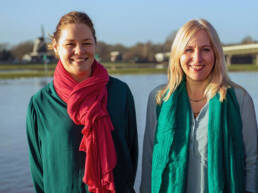
For Fibershed this book is a starting point, it covers the essentials, it explains how everything is connected. It’s meant to be an eye opener and spark curiosity in the reader who will hopefully become curious and research further.
The book is set to be launched in October. To finance the printing and distribution costs of this book, Fibershed has created a crowdfunding campaign as they believe only together we can make lasting change happen! Support the crowdfunding here and stay tuned for the release of the book later this year!
We believe these two books are powerful examples of the importance of education. By equipping individuals with knowledge about the environmental and social impacts of fashion and raising awareness about the need for sustainability, we can foster a more conscious and responsible fashion ecosystem. Through education, consumers can make informed choices, while industry professionals can develop innovative solutions. Raising awareness amplifies the voices of marginalised communities and workers, demanding accountability from fashion brands. It can also help uplift the work of innovative fashion changemakers to the forefront to inspire the rest of the industry. It is through these collective efforts that we can achieve a more sustainable and equitable future for the fashion industry.
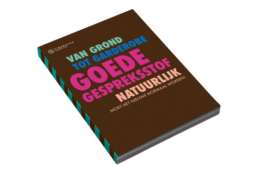
Related Posts
December 18, 2023
The True Impact of Vegan Handbags: How Lisa Marin’s life cycle analysis proves their products are better for the planet than (faux) leather alternatives.
Handbags are one of the most prominent…
September 1, 2023
A Tool for Change: Unveiling the Visionaries of Sustainable Fashion
In a world dominated by fast fashion…
August 16, 2023
Driving Change in the Fashion Industry: Lessons from the Copenhagen Global Fashion Summit 2023
The fashion industry has long been…
